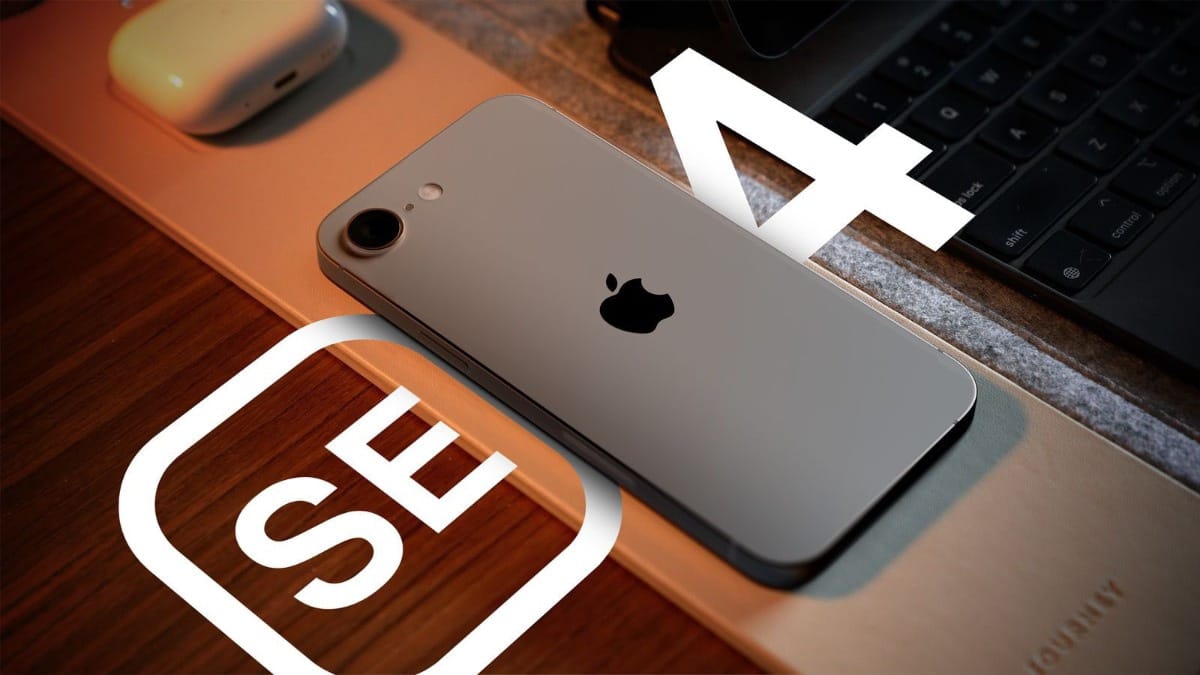The Apple iPhone SE 4 is the most anticipated budget-friendly upgrade from Cupertino in recent years. With rumors suggesting a revolutionary shift from the classic Touch ID design to a modern Face ID system, a large OLED display, and a powerful A18 chip, the iPhone SE 4 is poised to redefine affordability without sacrificing performance. In this in-depth article, we explore every detail—from release date expectations and price estimates to design improvements and a side-by-side comparison with previous SE models. Whether you’re an Apple loyalist or looking for a high-performance midrange smartphone, the iPhone SE 4 might just be the device to watch in 2025. :contentReference[oaicite:0]{index=0}
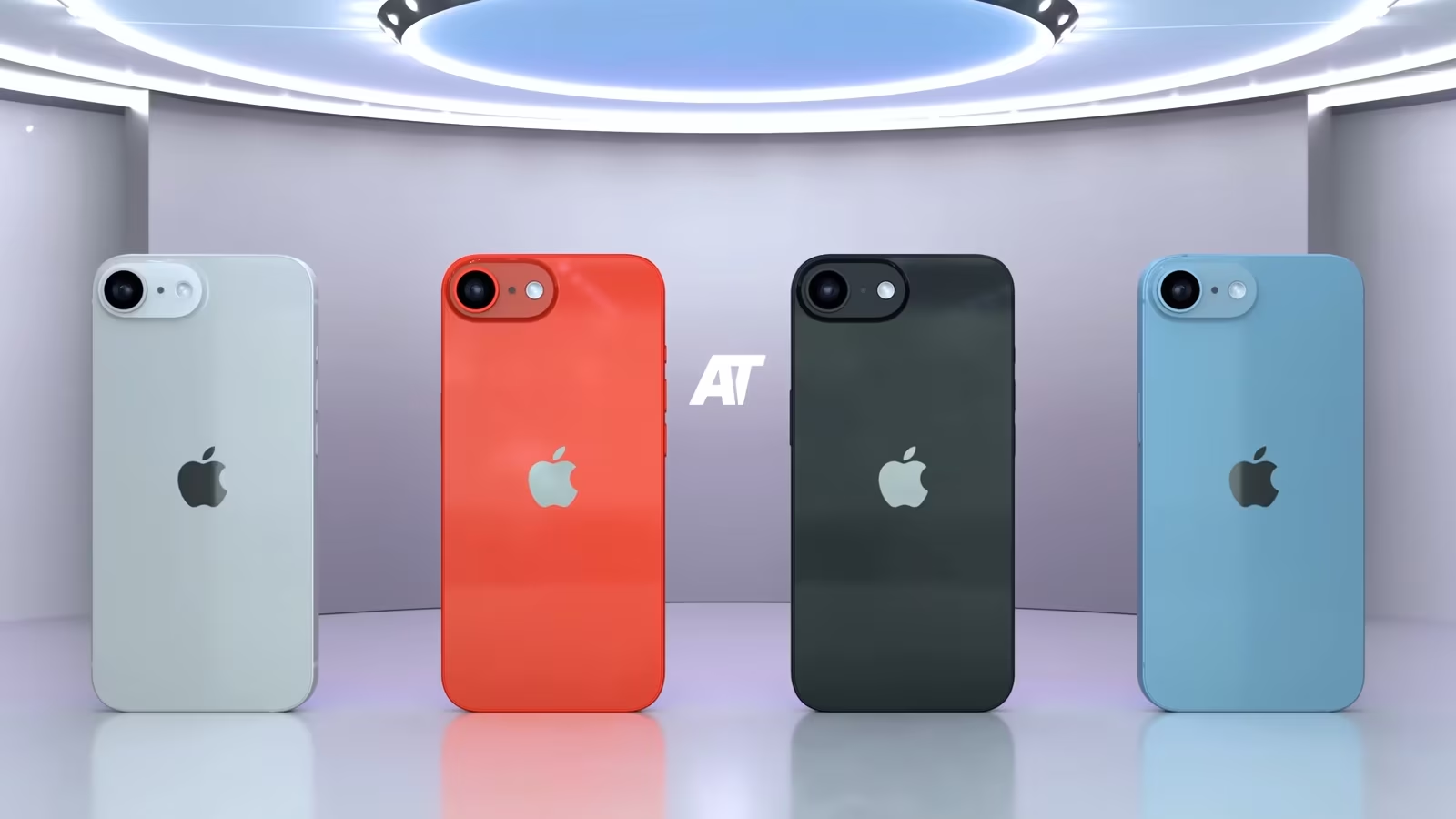
Overview & Background
Since its inception in 2016, the iPhone SE series has been Apple's answer to customers seeking a smaller, more affordable iPhone without sacrificing the essence of iOS. The first-generation iPhone SE was a game changer by repurposing older designs with modern internals, while subsequent iterations in 2020 and 2022 provided incremental upgrades. However, with market trends evolving rapidly and competitors offering premium midrange devices, Apple is gearing up to deliver a radical update with the iPhone SE 4.
Rumors circulating since early 2023 hint that this upcoming model, sometimes referred to as the iPhone 16E, will feature a complete design overhaul—including a move from a 4.7-inch LCD to a larger 6.06-inch OLED display, an upgraded camera system, and enhanced processing power via the A18 chip. :contentReference[oaicite:1]{index=1} Highlight: This model could mark the end of the Touch ID era as Face ID becomes the standard for all new iPhones.
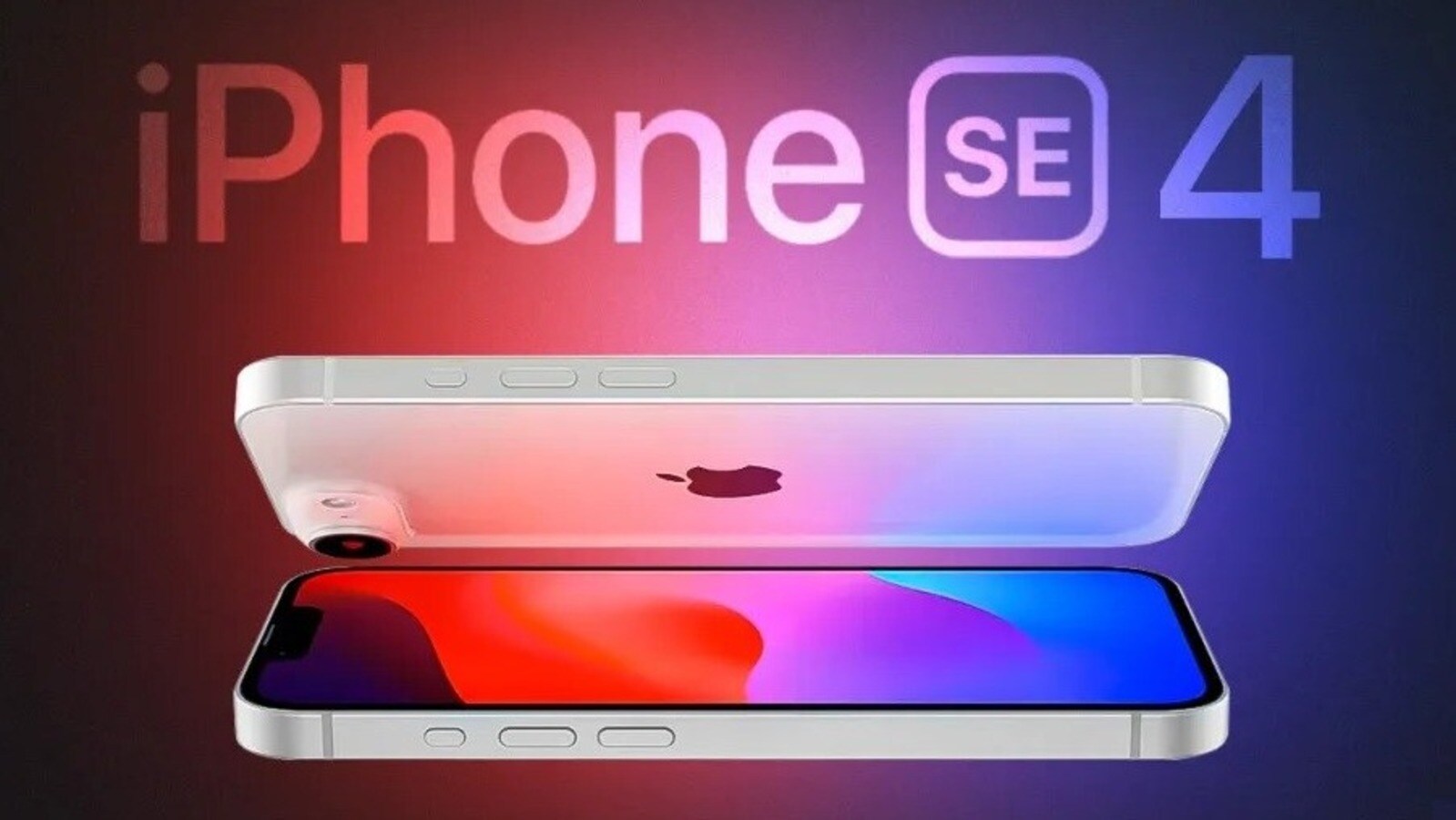
Release Date & Price
Multiple supply chain reports and leaks indicate that the iPhone SE 4 is expected to launch in early 2025, with many sources pointing to a March release. This timing would align with Apple's previous release patterns for the SE series, which saw launches in March and April. For instance, the iPhone SE 3 debuted on March 18, 2022, and the first-generation SE was released in early 2017. :contentReference[oaicite:2]{index=2}
In terms of pricing, the iPhone SE 4 is rumored to have a starting price in the United States of around $499 to $549, reflecting a slight increase from the iPhone SE 3's starting price of $429. In Europe, early estimates suggest a price of approximately €599. This modest bump in price is expected given the significant upgrades in display technology, processing power, and camera improvements.
Highlight: The rumored pricing strategy aims to deliver premium features at an affordable price, making the iPhone SE 4 a compelling option for budget-conscious consumers.
| Model | Release Date | Starting Price (US) |
|---|---|---|
| iPhone SE (1st Gen) | March 2016 | $399 |
| iPhone SE (2nd Gen) | April 2020 | $399 |
| iPhone SE (3rd Gen) | March 2022 | $429 |
| iPhone SE (4th Gen) | March 2025 (Expected) | $499 - $549* |
*Prices may vary based on storage configurations and regional differences. :contentReference[oaicite:3]{index=3}
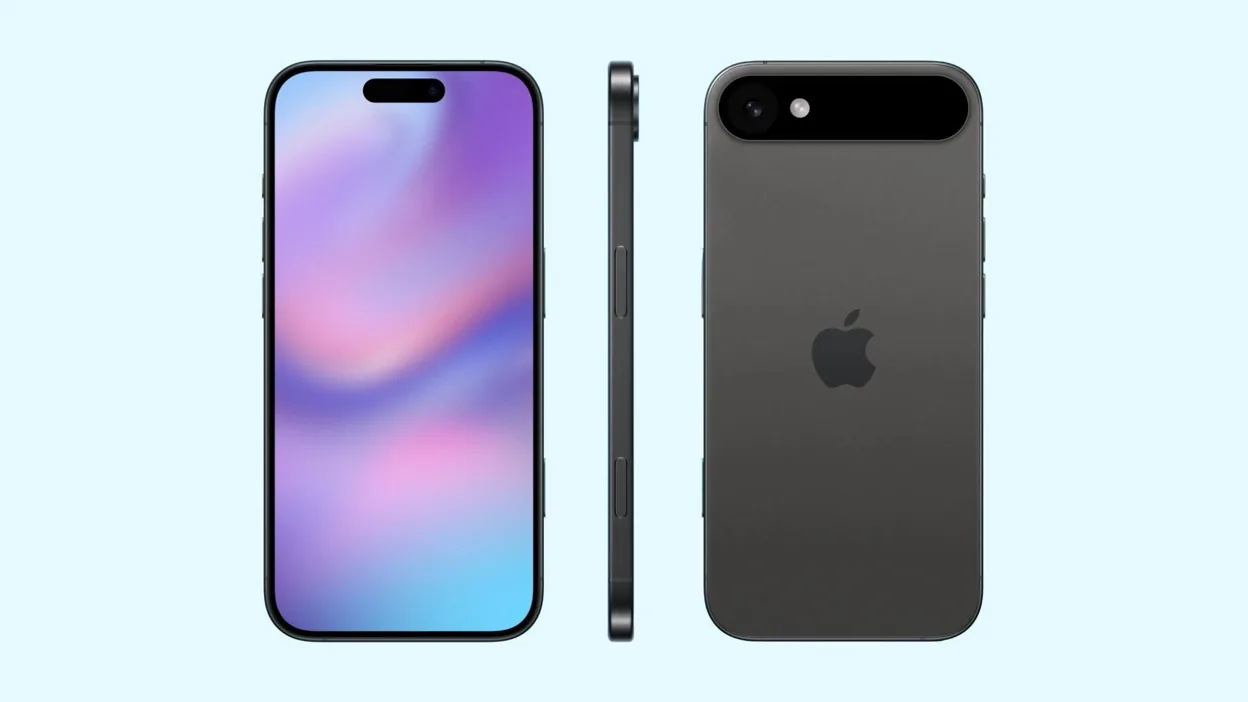
Design & Display Innovations
The iPhone SE 4 is expected to be a radical departure from the design language of its predecessors. Rumors indicate that Apple will adopt a modern design similar to the iPhone 14, featuring a full-screen, edge-to-edge OLED display. With a diagonal measurement of approximately 6.06 inches, the new display will provide a dramatically improved viewing experience over the 4.7-inch LCD panel found in the iPhone SE 3. :contentReference[oaicite:4]{index=4}
The transition to OLED not only promises better contrast and richer colors but also offers improved energy efficiency. Additionally, the removal of the Home button in favor of Face ID marks the end of the Touch ID era—a change that modernizes the device’s appearance while offering advanced biometric security. Although the dynamic features like Dynamic Island are unlikely to be incorporated into a budget model, the inclusion of a small notch for Face ID and front camera integration is expected.
Highlight: With slimmer bezels and a larger, brighter OLED display, the iPhone SE 4 will finally bridge the gap between budget and flagship iPhone aesthetics.
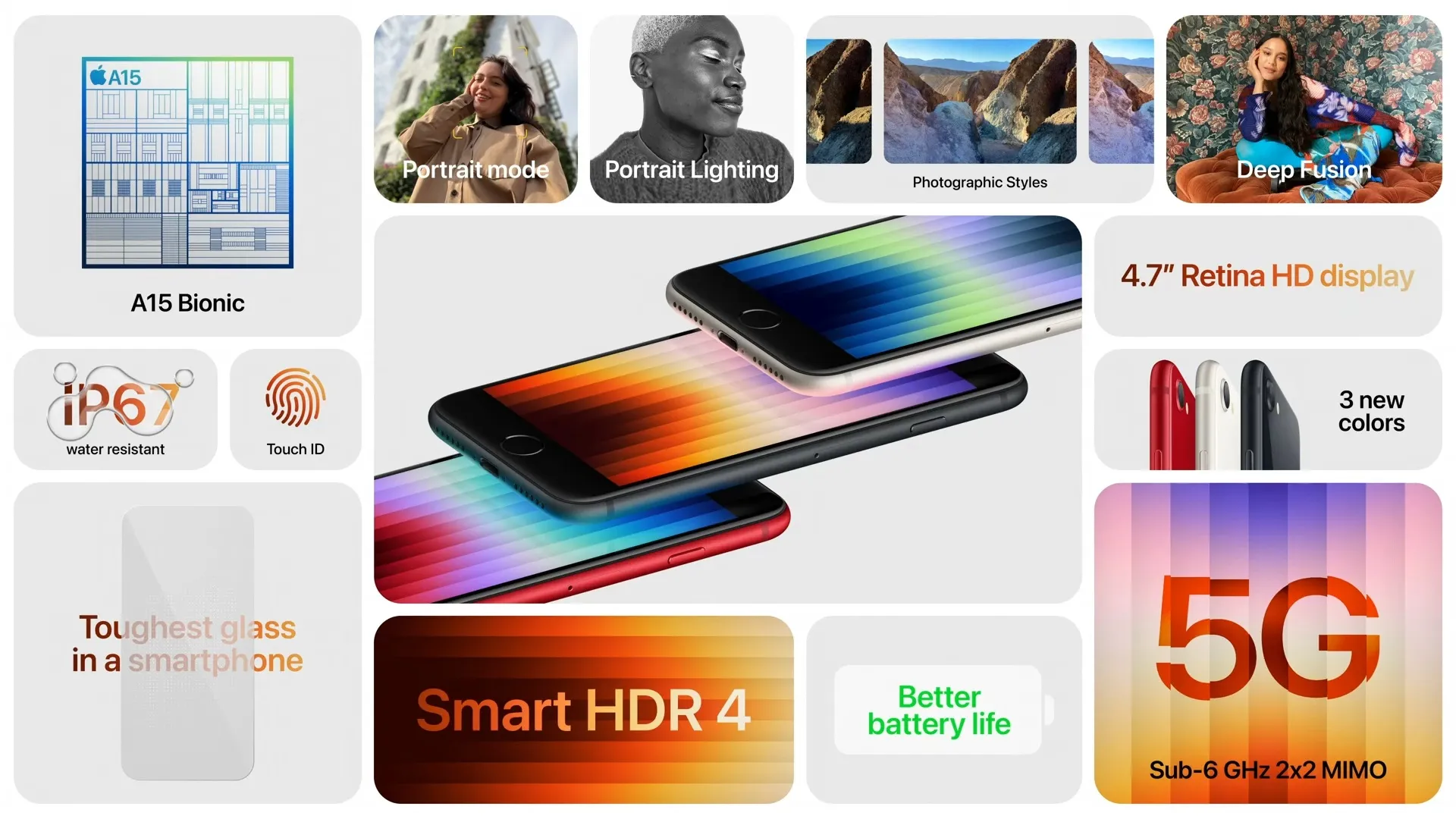
Specifications & Performance
Under the hood, the iPhone SE 4 is expected to pack some serious power. Leveraging the Apple A18 Bionic chip built on a state-of-the-art 3nm process, the new SE is set to deliver performance on par with the flagship iPhone 16 series. Combined with 8GB of RAM, this ensures smoother multitasking, faster app launches, and enhanced support for emerging AI capabilities—often referred to as Apple Intelligence. :contentReference[oaicite:5]{index=5}
Furthermore, Apple is rumored to be integrating its own 5G modem technology into the SE 4, reducing its dependency on third-party suppliers like Qualcomm. This in-house solution not only promises better connectivity but could also result in lower production costs, helping Apple maintain an attractive price point. The improved chipset and increased memory also mean that users can expect better battery management and overall system efficiency.
In summary, the iPhone SE 4 will mark a significant upgrade in terms of hardware, promising not only speed but also enhanced capabilities that bring advanced AI features to a traditionally budget-friendly line.
A18 Bionic: Desktop-Class Power
Early Geekbench 6 scores show remarkable performance:
Benchmark Comparison
| Chipset | Single-Core | Multi-Core |
|---|---|---|
| A15 (SE 2022) | 2145 | 5320 |
| A18 (SE 2025) | 2980 | 8720 |
Key architecture improvements:
- 3nm TSMC process
- 6-core CPU (2x High Performance + 4x Efficiency)
- 5-core GPU with hardware-accelerated ray tracing
- 16-core Neural Engine
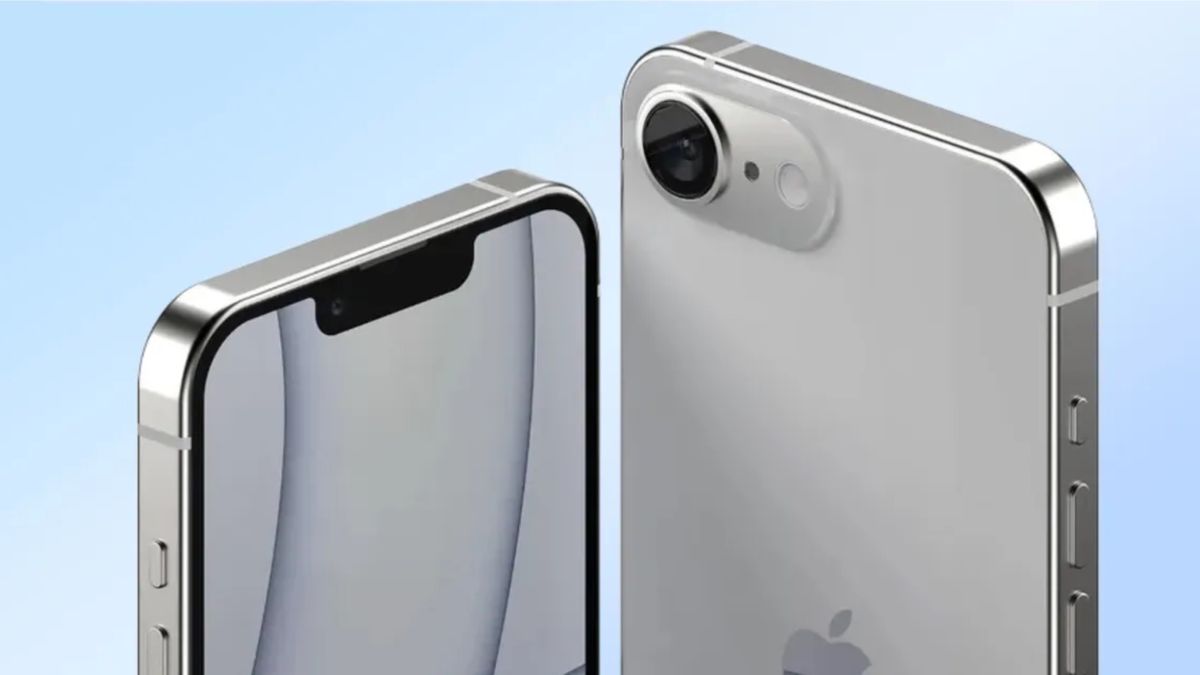
Camera Upgrades
One of the most significant enhancements in the iPhone SE 4 is expected to be in its camera system. While the current iPhone SE models feature a modest 12MP rear camera, the upcoming SE 4 is rumored to upgrade this to a 48MP sensor. This leap in resolution will likely offer dramatically improved image quality, better low-light performance, and advanced computational photography capabilities. :contentReference[oaicite:6]{index=6}
In addition to the rear camera, the front-facing TrueDepth camera is expected to be upgraded to 12MP, facilitating higher-quality selfies and enabling Face ID for secure authentication. These camera improvements, combined with advanced image processing algorithms powered by the A18 chip, will ensure that the iPhone SE 4 delivers a photographic experience that belies its budget-friendly price.
Highlight: The jump from 12MP to 48MP in the rear camera is a major upgrade that will allow the iPhone SE 4 to compete with higher-end models in terms of imaging quality.
Camera System: Finally Modernized
The SE 4's reported camera specs:
- 48MP Wide (ƒ/1.6, sensor-shift OIS)
- 12MP Ultra-Wide (120° FOV)
- 4K Cinematic Mode at 30fps
- Photonic Engine for low-light enhancement
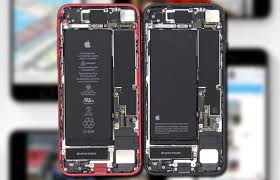
Battery Life & Charging
Battery life has been a longstanding criticism of previous iPhone SE models, which often suffered from limited capacity due to compact dimensions. The iPhone SE 4, however, is expected to incorporate a significantly larger battery—rumored to be around 3,279mAh. This boost in capacity should offer considerably longer usage times, even when powering a more demanding OLED display and the energy-hungry A18 chip. :contentReference[oaicite:7]{index=7}
In addition, while the current models support 20W wired charging, the SE 4 is anticipated to continue with fast charging and adopt a USB-C port instead of Lightning. This change not only modernizes the device’s connectivity but also complies with new regulatory standards in several markets.
Highlight: Enhanced battery capacity combined with USB-C fast charging will provide users with a device that lasts longer and charges more efficiently than its predecessors.
iPhone SE 4 vs. iPhone SE 3: A Detailed Comparison
To truly appreciate the upgrades in the iPhone SE 4, it helps to compare it with the previous generation, the iPhone SE 3. Below is a detailed side-by-side comparison of key specifications:
| Feature | iPhone SE 3 (2022) | iPhone SE 4 (2025 Expected) |
|---|---|---|
| Display | 4.7-inch IPS LCD (750 x 1334 pixels) | 6.06-inch OLED (1170 x 2532 pixels) |
| Processor | Apple A15 Bionic (5nm) | Apple A18 Bionic (3nm) |
| RAM | 4GB (with some configurations up to 6GB) | 8GB |
| Rear Camera | 12MP wide-angle | 48MP wide-angle |
| Front Camera | 7MP | 12MP TrueDepth |
| Battery | ~2,018mAh | ~3,279mAh |
| Port | Lightning | USB-C |
| Biometrics | Touch ID | Face ID |
| Starting Price (US) | $429 | $499 - $549 |
This comparison table clearly highlights the substantial improvements that the iPhone SE 4 brings to the table—from a dramatically larger and superior display to a cutting-edge processor and enhanced camera system.
Android Alternatives Comparison
| Device | Price | Chipset | Camera | Battery |
|---|---|---|---|---|
| iPhone SE 4 | $499 | A18 Bionic | 48MP+12MP | 3279mAh |
| Google Pixel 7a | $499 | Tensor G2 | 64MP+13MP | 4385mAh |
| Samsung Galaxy A54 | $449 | Exynos 1380 | 50MP+12MP | 5000mAh |
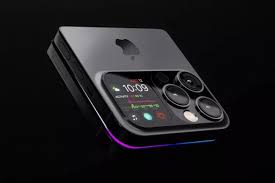
Future Outlook & Conclusion
The iPhone SE 4 represents a pivotal moment for Apple’s budget lineup. By integrating premium features such as a full-screen OLED display, the powerful A18 chip, enhanced camera modules, and Face ID, Apple is setting a new benchmark for affordable smartphones. The rumored inclusion of Apple Intelligence features further promises to deliver a smart, responsive, and future-proof device.
With an expected release in March 2025 and a competitive price point of around $499 to $549 in the US (or approximately €599 in Europe), the iPhone SE 4 is designed to attract a wide range of consumers—from first-time iPhone buyers to those looking for a secondary, cost-effective device. Highlight: If the leaks are accurate, the iPhone SE 4 could very well become one of the best-selling models in Apple’s history, thanks to its perfect blend of affordability and advanced technology.
While we await the official announcement from Apple, the current rumor mill paints an exciting picture. Apple’s commitment to innovation, even in its budget range, is evident in the ambitious specs and design changes forecast for the iPhone SE 4. For many, this model could be the ideal choice for a first premium iPhone experience without the high cost typically associated with flagship devices.
In conclusion, the iPhone SE 4 is more than just a refresh—it’s a statement that Apple is determined to offer cutting-edge technology at a price accessible to a broader audience. As the launch date draws near, we can expect more details to emerge, solidifying this model’s position as a must-have device in 2025. Whether you are upgrading from an older model or entering the iOS ecosystem for the first time, the iPhone SE 4 is set to deliver a compelling user experience that rivals even the higher-end iPhones.
